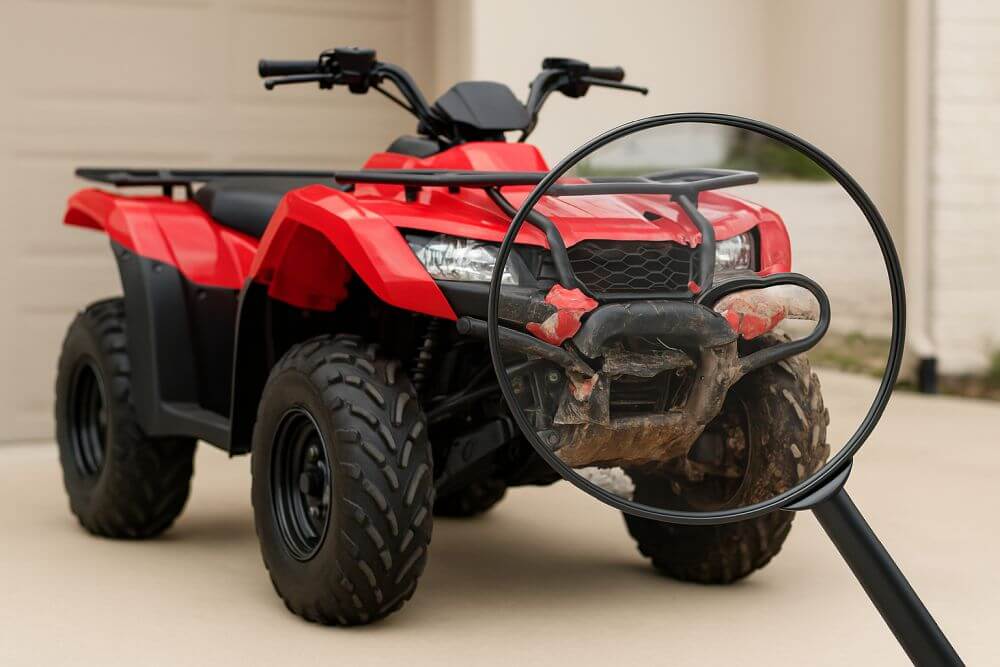The purchase of a “new” used motorcycle can be exciting, but it can also be filled with anxiety and uncertainty as you look upon that enticing bike with absolutely no idea of its history. You can get information from the current seller, but how do you know you are getting accurate facts or a slick sales pitch?
A motorcycle vehicle history report is one way to put your mind at ease as you go through the purchase process of a used motorcycle. One simple free motorcycle VIN check can turn up all the information you need to determine whether a bike is an awesome deal or one gigantic headache. A motorcycle history report is fast and easy to find, and all you need is the vehicle identification number to get started. Check out these tips on how to obtain the information you need to make a savvy motorcycle purchase.
What is a Motorcycle Vehicle History Report?
A motorcycle history report is a document that provides a wealth of information about a bike’s past, from title transfers to reported accidents. This report provides a buyer with peace of mind that the bike in question does not have any skeletons lurking in its garage that might result in major headaches for the new owner not too far down the road.
A motorcycle vehicle history report is a must for anyone shopping for a used bike. This report can be used to verify information provided by the seller. In some cases, the seller might be slightly off in his facts, maybe because he wasn’t the original owner of the bike or simply doesn’t remember all the details of the vehicle’s history. In rare instances, a seller may fudge on the facts of the vehicle to inflate the price or unload a bike with a history of problems.
The motorcycle history report will help a buyer verify the facts provided by the seller. In some cases, it can raise red flags about the vehicle that need to be addressed before the title changes hands. For example, the report might alert a buyer to the fact that the bike was once reported stolen, or that it has been in an accident that may have caused long-term damage to the frame or engine.
What is a Motorcycle VIN?
A motorcycle VIN check can be initiated with the vehicle identification number (VIN), which is usually found somewhere on the bike’s frame. The VIN is like the vehicle’s DNA, offering a wealth of information about where and when the bike was manufactured, which company manufactured it, and the specific model and body style. There is even a specific serial number assigned to the bike at the time it was released from the plant, which is included in the VIN to separate this particular vehicle from all the rest.
The motorcycle VIN check can be started by locating the VIN right on the bike’s frame. In most cases, the location is on the steering neck, near the headlight. However, some makes and models may place the VIN in a different location, such as the side of the engine or on the frame below the seat. The location is usually determined by the manufacturer of the motorcycle and the year it was made. If you are having trouble locating the VIN, a call to the manufacturer will usually help you pinpoint the correct spot.
What is Included in a Motorcycle VIN Check?
Depending on the source of the motorcycle vehicle history report, a potential buyer might gain access to any number of valuable facts, including:
- The last recorded odometer reading for the vehicle
- Whether the bike has been searched in other states
- Whether the bike has ever been rebuilt
- Title information, such as stolen, rebuilt or salvaged title history
- Manufacturer recalls on this particular make and model
- Potential damage to the vehicle and whether it has ever been crushed
- Manufacturer specifications for the vehicle
All of this information can be essential to someone who is looking to sink money into a used vehicle. Even if you decide to proceed with a purchase after seeing the motorcycle history report, you now have the facts to negotiate price and prepare for potential problems with the bike.
How to get a Motorcycle History Report
Thanks to the Internet, there are now many options for pulling a motorcycle vehicle history report today. Free reports are available from the Department of Motor Vehicle (DMV) and the National Insurance Crime Bureau (NICB). A DMV report will usually give you information about title transfers on the vehicle, which will let you know how many owners the bike has had. The NICB provides a motorcycle VIN check for stolen vehicles.
In addition, there are a number of companies that specialize in motorcycle vehicle history reports that provide additional information about the bike for a reasonable fee. These reports might include an accident history, supplemental title information and odometer readings. The latter can be particularly important to prevent odometer fraud – where the seller rolls back the odometer to falsely inflate the value of the vehicle.
To obtain a paid motorcycle history report, simply submit the VIN to the company and wait for your report to come up. Reports can be accessed from any location with Internet access and don’t require any special knowledge or information beyond the vehicle’s VIN. Reports can be obtained in a matter of moments and printed out to take to an appointment with the seller of the bike.
There are also a number of sources, often on the same websites that provide the motorcycle VIN check, available to help buyers decode the information provided on the motorcycle history report. This information can be used by both buyers and sellers of used vehicles to verify information about the bike and negotiate a fair price based on all the history available. A motorcycle vehicle history report has become a must for anyone in the market for a used bike, with much of the information a buyer needs to shop for a used vehicle with confidence.


